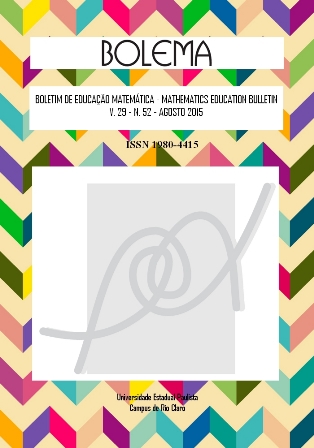What is Mathematics, Really? Who Wants to Know?
Palavras-chave:
Matemática. Filosofia da Matemática. Epistemologia. Cognição. Semiótica.Resumo
Famous physicists, like Einstein and Wigner have been wondering, why mathematical symbolism could play such an effective and decisive role in the development of physics. Since the days of Plato, there have been essentially two different answers to this question. To Plato mathematics was a science of the unity and order of this universe. Since Galilei people came to believe that mathematics does not describe the objective world, it is not a reflection of some metaphysical realism. It is rather a reflection of human activity in this world. Kant, by his “Copernican Revolution of Epistemology” seems to have been the first to realize this. For example, number, or more generally arithmetic, was to the Pythagoreans “a cosmology” (KLEIN, 1985, p. 45), to Dedekind it is a means to better distinguish between things. The paper sketches the transition from an ontological to a semiotic interpretation of mathematics. Keywords: Mathematics. Mathematics Education. Philosophy of Mathematics. Epistemology. Cognition. Semiotics.Downloads
Arquivos adicionais
Publicado
2015-08-26
Edição
Seção
ARTIGOS
Licença

>>>>> BOLEMA: Mathematics Education Bulletin = BOLEMA: Boletim de Educação Matemática, Rio Claro, SP, Brasil - eISSN 1980-4415 - está licenciado sob Licença Creative Commons


